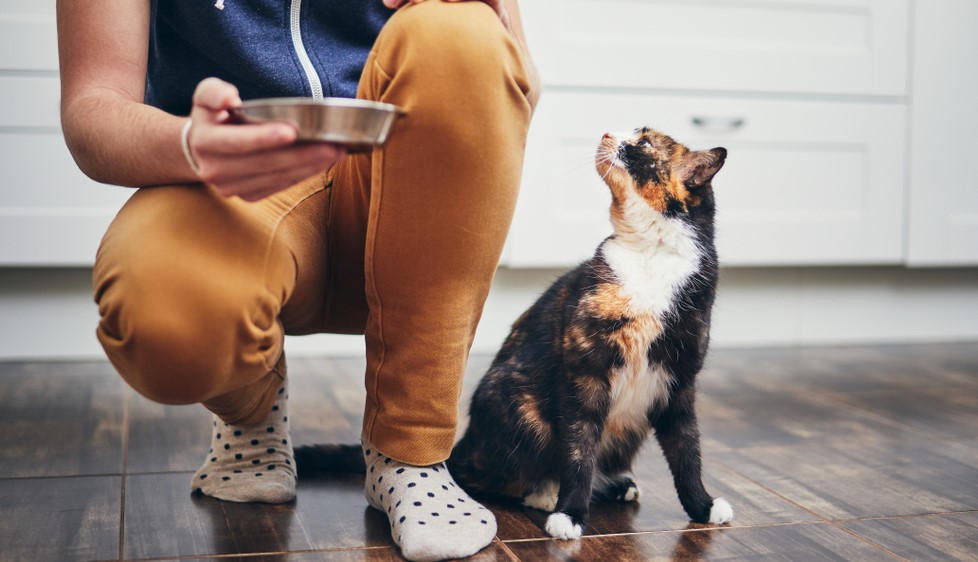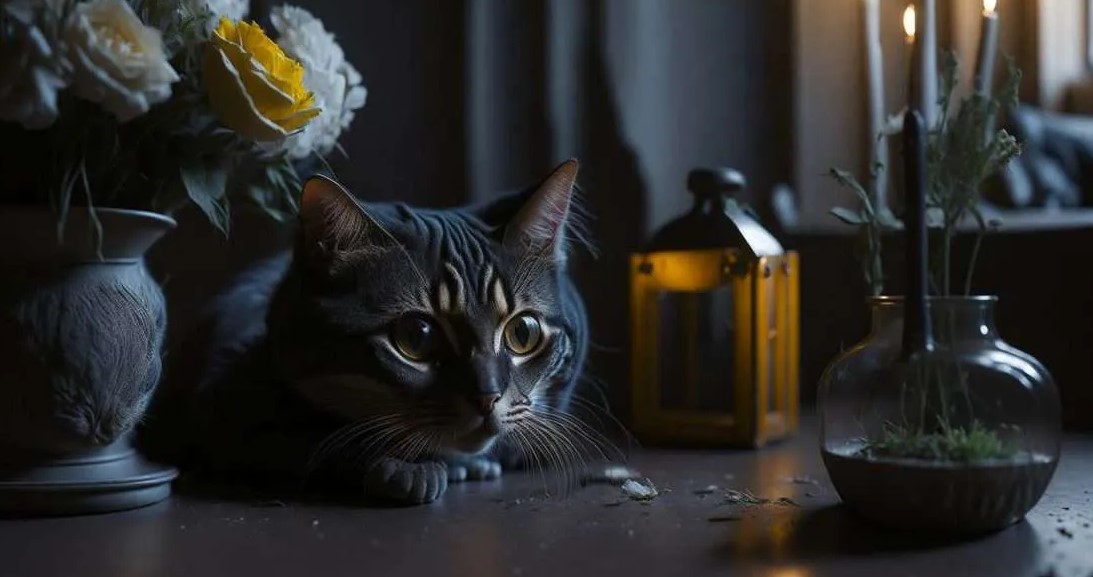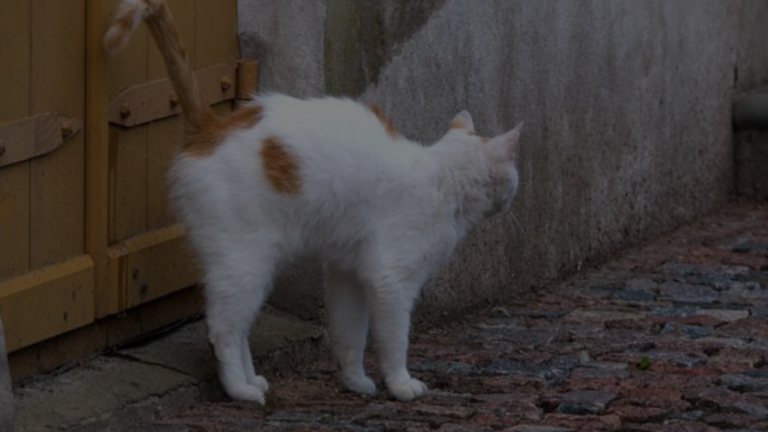Cats are fascinating creatures, each with their unique personalities. While they often exude an air of independence, they can also experience anxiety and stress, just like us humans. Recognizing the signs of anxiety in your feline friend is crucial for their well-being. In this article, we will take a quiz, if this question is raised in your mind “Does My Cat Have Anxiety” to help you assess if your cat might be dealing with stress or anxiety. By the end of this quiz, you’ll have a clearer understanding of your cat’s emotional state and how to address it.

The Feline Mind: Understanding Anxiety
Before we dive into the quiz, let’s briefly discuss what anxiety in cats looks like. Anxiety in cats can manifest in various ways, including:
- Excessive Hiding: Does your cat seem to disappear for hours or even days on end? Hiding excessively is a common sign of feline anxiety.
- Aggressive Behavior: Is your typically calm and gentle cat suddenly lashing out at you or other pets in the household? Unexplained aggression can be an indicator of stress.
- Changes in Appetite: Has your cat’s appetite changed dramatically? Whether they’re eating more or less, alterations in eating habits can be linked to anxiety.
- Litter Box Issues: Is your cat urinating or defecating outside the litter box? This can be a cry for help and a response to stress.
- Excessive Grooming: Is your cat grooming themselves obsessively to the point of creating bald patches? This can be a form of self-soothing due to anxiety.
The “Does My Cat Have Anxiety” – Quiz
Now, let’s get into the quiz. Remember to be observant and honest in your responses. Your cat’s well-being depends on it.

Section 1: Behavior
1. Does your cat hide for extended periods?
- Yes
- No
2. Has your cat become more aggressive toward people or other pets?
- Yes
- No
3. Have you noticed any changes in your cat’s playfulness or activity levels?
- Yes
- No
Section 2: Eating Habits
4. Has your cat’s appetite decreased significantly?
- Yes
- No
5. Has your cat’s appetite increased significantly?
- Yes
- No
Section 3: Elimination Habits
6. Does your cat urinate outside the litter box?
- Yes
- No
7. Does your cat defecate outside the litter box?
- Yes
- No
Section 4: Grooming Behavior
8. Is your cat excessively grooming themselves?
- Yes
- No
9. Have you noticed any bald patches on your cat’s fur due to over-grooming?
- Yes
- No
Section 5: Environmental Changes
10. Have there been recent changes in your cat’s environment, such as a move or new pets?
- Yes
- No
Scoring Your Quiz
Now, let’s tally up your answers.
- If you answered “Yes” to 3 or more questions in Section 1, your cat may be exhibiting signs of anxiety related to their behavior.
- If you answered “Yes” to questions in Section 2 about changes in eating habits, this may indicate stress.
- If you answered “Yes” to questions in Section 3 regarding elimination habits, your cat might be trying to communicate their distress.
- If you answered “Yes” to questions in Section 4 about grooming behavior, your cat could be using this as a coping mechanism for anxiety.
- If you answered “Yes” to question 10 in Section 5, environmental changes may be contributing to your cat’s anxiety.
Signs of Stress in Cats
Cats are masters of hiding their emotions, so it can be tricky to tell when they’re feeling stressed. However, several physical and behavioral signs can clue you in.
Physical signs of stress in cats:
- Changes in appetite: A stressed cat may eat more or less than usual, or they may become picky about their food.
- Changes in grooming: Stressed cats may groom themselves excessively, to the point of hair loss. They may also neglect grooming altogether.
- Changes in body language: A stressed cat may hunch their back, flatten their ears, and tuck their tail between their legs. They may also have dilated pupils and a tense posture.
- Changes in elimination: Stressed cats may urinate or defecate outside the litter box. They may also have difficulty urinating or defecating at all.
- Health problems: Stress can weaken a cat’s immune system, making them more susceptible to illness.
Behavioral signs of stress in cats:
- Hiding: A stressed cat may hide away from people and other pets. They may also hide in unusual places, such as in boxes or behind furniture.
- Aggression: Stressed cats may become more aggressive, hissing, growling, or even scratching or biting.
- Vocalization: Stressed cats may meow more than usual, or they may make other vocalizations, such as yowling or chirping.
- Destructive behavior: Stressed cats may scratch furniture, chew on objects, or tear at carpet.
- Changes in activity level: Stressed cats may become more or less active than usual. They may sleep more than usual, or they may pace or meow restlessly.
If you notice any of these signs of stress in your cat, it’s important to take action. Here are a few things you can do to help your cat relax:
- Provide a safe and quiet space: Create a space in your home where your cat can go to feel safe and secure. This could be a quiet room, a cat tree, or even a hiding box.
- Make sure your cat has plenty of exercise: Exercise can help to relieve stress and anxiety in cats. Provide your cat with toys, scratching posts, and climbing structures to help them stay active.
- Spend time with your cat: Give your cat plenty of attention and affection. However, be mindful of your cat’s body language and don’t force interaction if they seem stressed.
- Create a predictable routine: Cats thrive on routine. Try to feed your cat, play with them, and clean their litter box at the same time each day.
- Consider using pheromone diffusers: Pheromone diffusers can help to reduce stress and anxiety in cats.
If you’re concerned about your cat’s stress levels, it’s always a good idea to talk to your veterinarian. They can help you to rule out any underlying medical conditions and can provide you with additional tips for managing your cat’s stress.
What to Do Next
If your quiz results indicate that your cat is experiencing anxiety, it is important to consult a veterinarian or cat behaviorist. They can provide expert guidance and recommend strategies to help reduce your cat’s stress.

In addition to seeking professional advice, you can create a more calming environment for your cat by providing plenty of hiding places, interactive toys, and a consistent routine. These small changes can make a big difference in your cat’s emotional well-being.
Resources & References
For further information on feline anxiety and behavior, consider exploring these trusted resources:
Recommended Articles
You can also refer to our related articles for more insights into cat behavior:
- Why Cat Died After a Bath?
- Do Cats Kill Each Other?
- To further enhance your understanding of feline stress and anxiety, consider watching this informative YouTube video: How to Tell if Your Cat is Stressed. The video provides valuable tips and visual cues to help you assess your cat’s emotional state.
In conclusion, understanding and addressing your cat’s anxiety is essential for their overall health and happiness. By taking this quiz and seeking professional advice when needed, you’re on the right path to ensuring your feline companion lives a stress-free and content life.
FAQs – Cat Have Anxiety
How can I help my cat with anxiety?
Create a safe space, provide enrichment, and reduce anxiety triggers.
What are the 3 signs of anxiety and stress in cats?
Hiding, grooming excessively, and vocalizing.
How can I treat my cat’s anxiety naturally?
Use pheromone diffusers, playtime, and training.
Why is my cat acting weird and scared?
Stressors such as new people, places, or pets can cause anxiety.
What medicine can I give my cat for anxiety?
Talk to your vet about medication options such as antidepressants and anti-anxiety medications.
Does catnip help with cat anxiety?
Catnip can have a calming effect on some cats, but it can also excite others.







